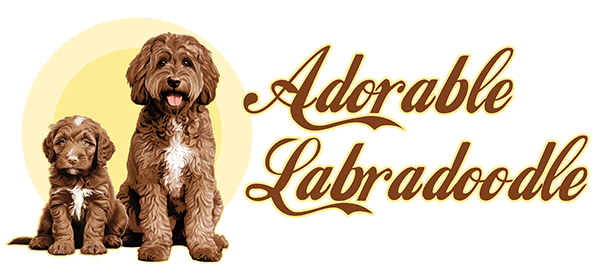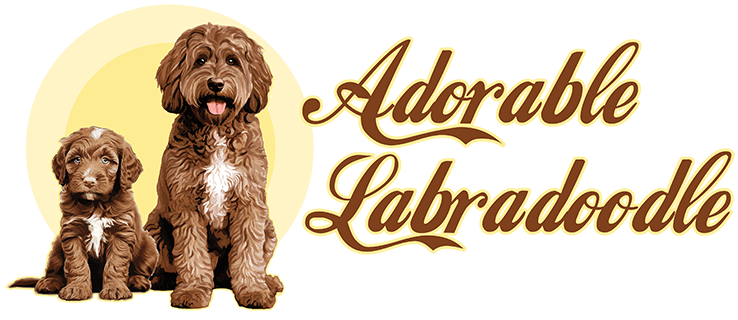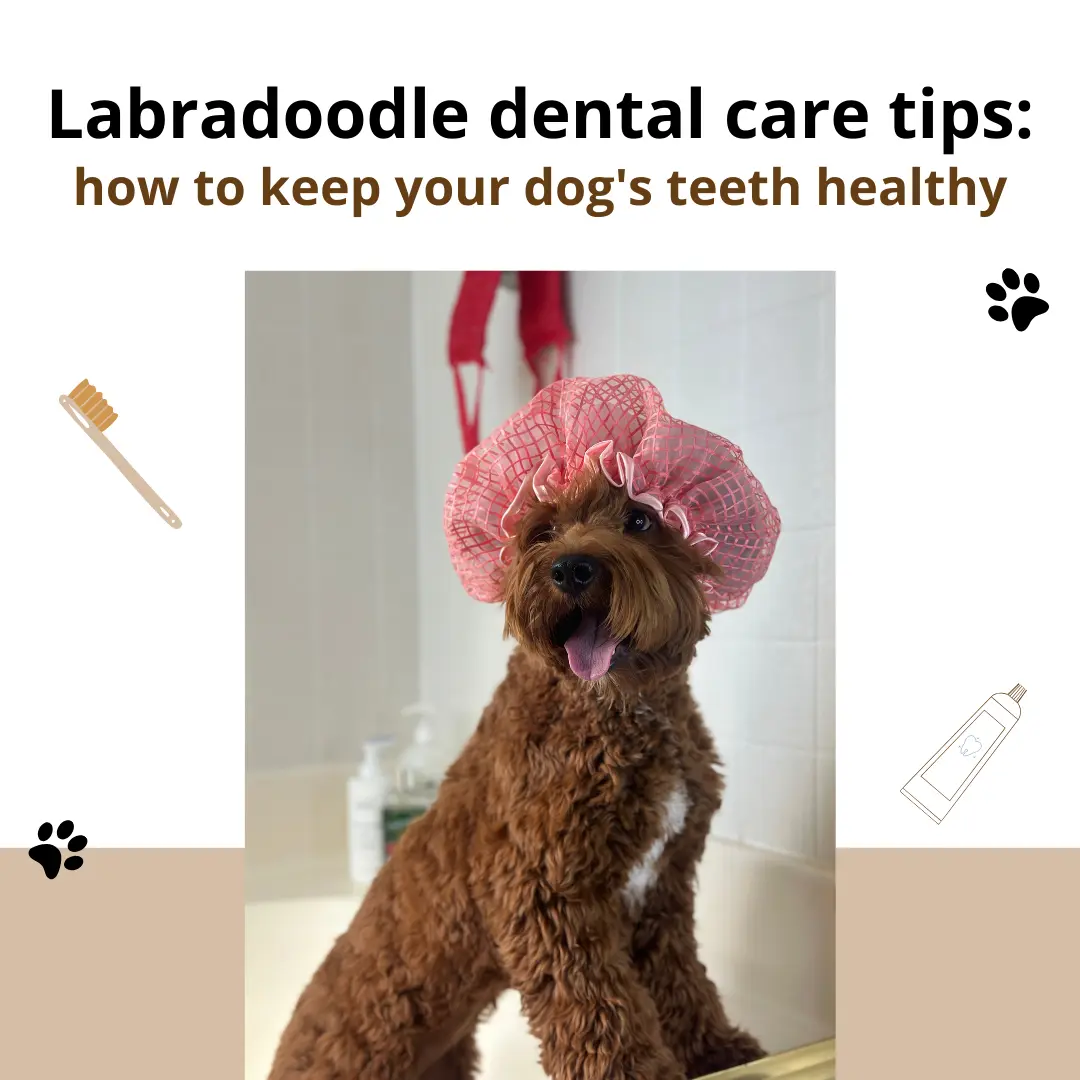As a Labradoodle owner, you know that your dog’s health is important, and that includes their dental care. Regular dental hygiene for Labradoodles is essential not only for maintaining fresh breath but also for preventing serious health issues. In this article, we’ll go over essential tips for Labradoodle dental care, including signs of dental problems, the best practices for maintaining healthy teeth, and the right products to use.
Why Labradoodle Dental Care is Important
Labradoodle dental care is more than just about appearance—it’s about your dog’s overall health. Poor dental hygiene can lead to tooth decay, gum disease, and other health complications, such as heart disease and kidney problems. Ensuring your Labradoodle’s teeth stay clean and free from plaque buildup can prevent these issues, ensuring they live a happy, healthy life.
However, it’s important to note that dental care needs can vary depending on your dog’s age, breed, and overall health. Regular check-ups with your vet will help determine the best routine for your Labradoodle’s teeth.
Signs of Dental Issues in Labradoodles
Before diving into the tips for keeping your Labradoodle’s teeth clean, it’s important to understand the signs of dental problems. By recognizing early symptoms, you can seek veterinary care before it becomes a serious issue. Common signs of dental problems in Labradoodles include:
- Bad Breath: While some dog breath is normal, persistent bad breath could be a sign of periodontal disease.
- Red or Bleeding Gums: If you notice your Labradoodle’s gums are inflamed or bleeding, this is a sign of gum disease.
- Tartar Buildup: Visible brown or yellow deposits on the teeth indicate a need for cleaning.
- Difficulty Eating: If your Labradoodle seems to have trouble chewing or avoids hard food, they may have tooth pain.
- Excessive Drooling: Increased salivation can be a sign of dental discomfort.
If you notice any of these signs, it’s time to take action and start focusing on your Labradoodle’s dental care. However, some dogs may show no symptoms even when dental problems are developing, so regular vet visits are important for early detection.
Labradoodle Dental Care Tips for Healthy Teeth
1. Brushing Your Labradoodle’s Teeth for Better Dental Health
Brushing your Labradoodle’s teeth should be a regular part of their routine. Ideally, you should brush your dog’s teeth several times a week, although daily brushing is the most effective way to prevent plaque buildup. Use a toothbrush and toothpaste specifically designed for dogs, as human toothpaste can be harmful to them.
To start, gently brush a small section of your Labradoodle’s teeth, gradually working your way to other areas. Be patient and make the experience positive by rewarding your dog with treats and praise. If you’re unsure how to properly brush your Labradoodle’s teeth, consult your vet for guidance. Regular brushing can be one of the most effective ways to maintain your Labradoodle’s dental hygiene.
It’s important to remember that not all dogs are comfortable with having their teeth brushed, especially if they haven’t been accustomed to it from a young age. If your Labradoodle is reluctant or anxious about tooth brushing, consult with your vet. There are alternatives, such as dental wipes or even enzymatic gels, that can help maintain dental health without the stress of brushing.
2. Use Dental Chews and Toys for Labradoodles
Dental chews and toys are an excellent way to help keep your Labradoodle’s teeth clean between brushings. These chews are designed to reduce plaque and tartar buildup as your dog chews on them. There are many types available, from rawhide chews to rubber toys with grooves that can help clean your dog’s teeth. Just make sure that the chews are appropriate for your Labradoodle’s size and age.
However, not all chews are suitable for every dog. If your Labradoodle has sensitive teeth or gums, it’s important to choose softer chews or consult with your vet before introducing new chews. Chewing on very hard objects could potentially damage your dog’s teeth, so make sure to pick products that are specifically designed for your dog’s needs.
Look for products that are designed specifically for dogs, and that have been shown to improve Labradoodle dental health. In addition to cleaning your dog’s teeth, these products can also help reduce boredom and anxiety.
3. Regular Professional Cleanings to Maintain Labradoodle Dental Health
Even with regular home care, professional cleanings by a vet are still necessary to maintain optimal dental health. Your vet can remove any tartar buildup that may be difficult to clean at home, check for any underlying dental issues, and provide additional dental care recommendations specific to your Labradoodle’s needs.
Most vets recommend a professional cleaning once a year, but some dogs may need it more frequently. If your Labradoodle has a history of dental issues or is genetically predisposed to oral health problems, your vet may suggest more frequent cleanings. During a professional cleaning, the vet may also perform an examination to check for tooth decay, infections, or other health problems.
However, remember that every dog is different, and the frequency of professional cleanings will depend on your Labradoodle’s individual dental health. Consult your vet to establish a cleaning schedule that works best for your dog.
4. Provide a Balanced Diet for Strong Teeth
What your Labradoodle eats plays a significant role in their dental health. Dry food is generally better for dental hygiene compared to wet food because it helps scrape off plaque as your dog chews. Additionally, you can find specific dental dog food formulas designed to help prevent tartar buildup.
Make sure to feed your Labradoodle a balanced diet that supports their overall health, as nutritional deficiencies can sometimes lead to dental problems. If your dog has specific dietary needs, such as food sensitivities or allergies, speak with your vet to ensure you’re providing the best food for their dental health.
Always consult your vet about the best food options for your dog’s dental needs, as some Labradoodles may require specialized diets to maintain optimal oral health.
5. Using Water Additives for Labradoodle Dental Care
Water additives are a simple and effective way to promote dental hygiene in Labradoodles. These products are added to your dog’s water bowl and can help reduce plaque and tartar, freshen breath, and prevent gum disease. While they should not replace brushing, they can be a helpful addition to your dog’s dental care routine.
Look for water additives that are safe for dogs and approved by veterinarians. Some even contain enzymes that help break down plaque buildup and prevent future dental issues. Adding a water additive is a great way to support your Labradoodle’s dental care when you’re busy or away from home.
However, not all dogs will drink water additives without issue. If your Labradoodle is a picky drinker, you may need to experiment with different brands or consult with your vet for recommendations.
6. Regular Checkups with Your Vet for Dental Health
Regular vet checkups are crucial to maintaining your Labradoodle’s overall health, including their dental health. During these visits, your vet will check for early signs of dental issues and recommend any necessary treatments. If your Labradoodle is prone to dental problems, your vet may suggest a more frequent dental checkup schedule.
Common Dental Problems in Labradoodles
While regular care can keep many dental issues at bay, Labradoodles are still prone to certain dental problems. The most common include:
- Periodontal Disease: This is a serious gum infection that can lead to tooth loss. It’s caused by plaque and tartar buildup along the gum line.
- Tooth Decay: Cavities can form in your dog’s teeth if they are exposed to sugary foods or poor dental hygiene.
- Oral Tumors: Though rare, Labradoodles can develop growths in their mouths that may require surgical removal.
By staying proactive with your Labradoodle’s dental care, you can help prevent these issues and ensure their long-term health. Every dog is different, so if you have concerns about your Labradoodle’s teeth, don’t hesitate to consult with your veterinarian for personalized advice.
Conclusion: Keep Your Labradoodle’s Teeth Healthy
Proper Labradoodle dental care is a key component of your dog’s overall health and well-being. By brushing their teeth regularly, using dental chews, scheduling professional cleanings, and providing a balanced diet, you can keep your Labradoodle’s smile bright and their mouth healthy. Early detection of dental problems can help prevent more serious issues down the road, ensuring your Labradoodle stays happy and healthy for years to come. Start incorporating these Labradoodle dental care tips into your routine today and enjoy a lifetime of smiles together!



